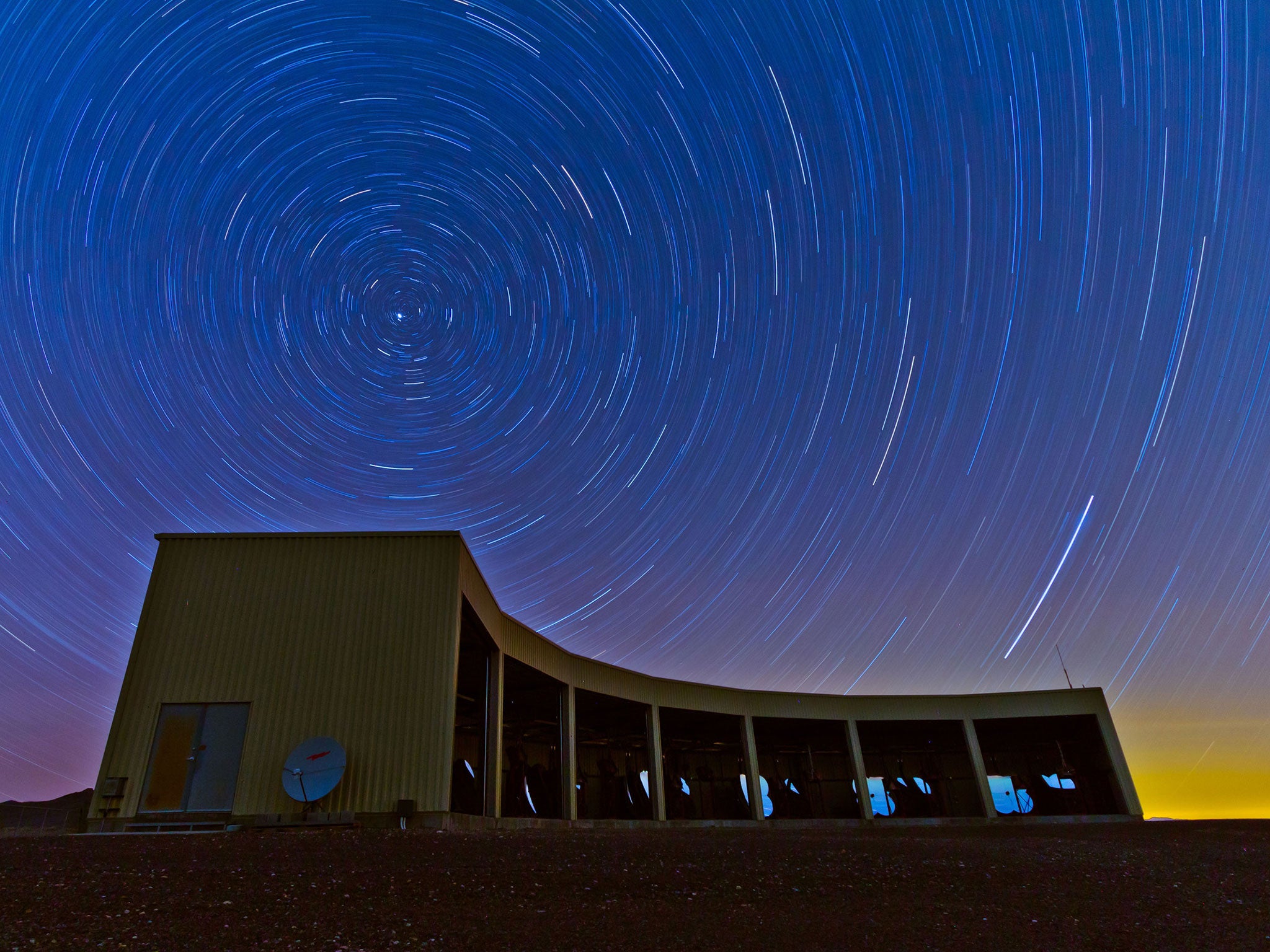The Independent's journalism is supported by our readers. When you purchase through links on our site, we may earn commission.
Hearing cosmic radiowaves live for first time, scientists could solve years-long mystery
The mysterious ‘blitzar’ has been heard since 2007, but scientists have caught it live for the first time

As live performances go, a mysterious pulse of radio waves emanating from deep in the universe has to be up with the greats. And scientists have finally caught it.
The blitzars last only about a millisecond — during which time they give out as much energy as the sun does in a million years, according to the New Scientist — and have only ever been heard on historical data.
The source must be "huge, cataclysmic and up to 5.5 billion light years away," one scientist told the New Scientist.
But a team of scientists from Swinburne University in Melbourne, Australia has identified one of them live, as it happened.
Nobody really knows where the blitzars come from — a top contender is a huge neutron star that should have given way to a black hole, but didn’t — but the new findings are likely to help scientists find out.
When the blitzar was spotted by a team led by Emily Petroff, other telescopes were turned towards the source, helping to study the aftereffects. They didn’t see any afterglow — ruling out some of the possible sources such as a supernova.
Scientists hope that they will soon discover another blitzar in a different frequency range. That will allow them to conclusively associate it with something and will help pin it down to a specific source.
Subscribe to Independent Premium to bookmark this article
Want to bookmark your favourite articles and stories to read or reference later? Start your Independent Premium subscription today.

Join our commenting forum
Join thought-provoking conversations, follow other Independent readers and see their replies